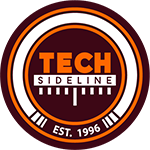 Well. The ND Band is Socially Distanced. -- HOO86 09/12/2020 2:02PM
Well. The ND Band is Socially Distanced. -- HOO86 09/12/2020 2:02PMWSJ op-ed by Jack Swarbrick. on decision to play
Notre Dame Is Playing Football. See You at Touchdown Jesus
South Bend, Ind.
On Saturday the University of Notre Dame will kick off its 132nd football season. The decision to play will likely draw more scrutiny than any previous season opener, even the ones played during the Great Depression, two world wars, and the Spanish Flu pandemic of 1918.
America’s politicization of the Covid-19 pandemic hasn’t spared college athletics. Notre Dame’s decision to play is celebrated by some and condemned by others. In such an environment, any explanation I offer is sure to get lost in the abyss where civil discourse now goes to die, but I feel compelled to try. Consider it an effort to win one for the Gipper.
Notre Dame’s decision to compete in fall sports is first and foremost a byproduct of the university’s decision to bring students back to campus for the academic year. Had Notre Dame opted for a semester of remote learning, we wouldn’t be playing sports this fall.
Another foundational element for our decision is the perspective of our student-athletes. We have been talking to them about the risks posed by the virus, safety protocols, and their freedom to choose whether they compete. We are confident that we understand their concerns and that they are making informed and independent decisions.
We still must evaluate whether playing is safe. That begins with a commitment to follow the counsel provided by experts on our campus, by state and local health officials, by independent national experts, and by the Atlantic Coast Conference’s Medical Advisory Group. The last, a group largely of physicians from the 15 ACC member institutions, has been especially important to our decision-making.
Just as universities have reached different conclusions about bringing students back to campus, so too have they reached different conclusions about playing fall sports. This is not, as some choose to portray it, a case of fundamental differences about the science surrounding Covid-19 or a failure to follow the counsel of medical experts. The virus presents uncertainties, and local conditions are especially relevant.
In early August, the Big Ten and Pacific-12 conferences decided to cancel their fall sports. At the time, Notre Dame and the ACC didn’t commit to play; we decided only to continue preparing while gathering more information and experience. The additional time proved very beneficial.
Through last week, the 1,366 Covid-19 tests involving members of our football team produced 12 positive results. This data across three months has reinforced our confidence that we can help keep our student-athletes safe with frequent testing, masks and carefully structured approaches to physical spaces, workouts and practices.
Our experience also appears to be at odds with the assumption that football is especially risky for transmitting the virus. Our 12 positive tests occurred during seven different rounds of testing over two months, yet none of those positive cases produced even a small cluster of cases among the team. Further, our experience suggests that the structure and discipline of being “in season” can have a positive impact and perhaps make student-athletes more focused and more cautious about their behavior. Our fall sports have significantly lower numbers of positive tests than our spring sports.
We are also reassured by the ACC’s testing protocols. Notre Dame and its opponents will be tested three times each week they play: 48 hours after a game, midweek and the night before the next game.
When writing about schools that are going ahead with their fall sports season, members of the media feel compelled to call the decision a “money grab.” This is wrong and prejudicial. Notre Dame certainly doesn’t assume that schools deciding not to play football this fall think they can produce greater revenue in the spring by hosting more spectators and reducing the risk of canceled games. Yet our critics allege that financial considerations are driving the decision to play football. The safety of our students, faculty and staff and the success of this school year are the only factors driving Notre Dame’s decisions. If financial considerations were the focus, Notre Dame wouldn’t have limited attendance at football games to students, faculty and staff—a decision that ensures that the revenue won’t cover the costs of playing each game.
Notre Dame will continue to evaluate the merits of moving forward. Every day we hear from student-athletes, keep informed on the latest medical science, and evaluate our ability to keep our athletes and the Notre Dame community safe. That may result in canceled games or interrupted seasons. For today, however, it leads us to a first football game and a season that will contribute to the education of our student-athletes, the culture of our campus, and a sense of community among all who root for the Fighting Irish—and maybe even among those who root against us.
Mr. Swarbrick is Notre Dame’s director of athletics.
Link: https://www.wsj.com/articles/notre-dame-is-playing-football-see-you-at-touchdown-jesus-11599849179
Posted: 09/11/2020 at 6:55PM
+4
Insert a Link
Enter the title of the link here:
Enter the full web address of the link here -- include the "http://" part:
Enter the full web address of the link here -- include the "http://" part:

|
Current Thread:
|
 Well. The ND Band is Socially Distanced. -- HOO86 09/12/2020 2:02PM
Well. The ND Band is Socially Distanced. -- HOO86 09/12/2020 2:02PM Nicely done..... -- 2hhoop3 09/11/2020 7:02PM
Nicely done..... -- 2hhoop3 09/11/2020 7:02PM














